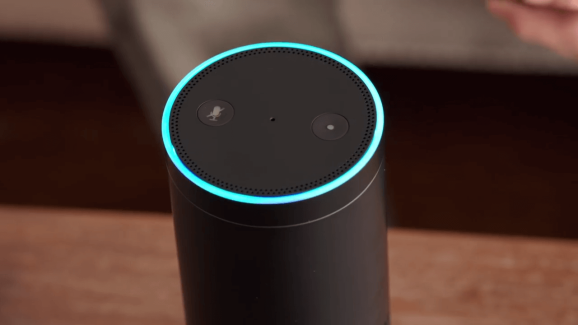
There’s a new woman in my life, and my wife is jealous. Really?
I admit that I’ve been a little preoccupied lately with automating my house, but to say that I talk to Alexa more than the mother of my children is unfair.
No, it’s not obsessive behavior; it’s an experiment in what’s possible.
Over the past three weeks I’ve replaced every one of our wasteful incandescent lights with energy-efficient LED smart bulbs.
There are five motion-sensing video cameras covering the home’s doors and windows, all of them programmable, their feeds beamed to a secure server somewhere in central Ohio.
Our smoke detectors alert me at the slightest whiff of smoke or carbon dioxide, and I can tell Alexa to lower the thermostat a few degrees without her griping at me about the electric bill.
And the music? “Play some Bruce Springsteen, Alexa” I say, and The Boss immediately assures me that, yes, everybody does have a hungry heart.
As I asked during my now infamous Near-Earth objects blog from a couple of months ago, “What’s any of this have to do with manufacturing?” Again, the answer is plenty—my investigation into home automation is a perfect example of where the industry is headed.
If so inclined, we can already keep an eye on our shop floors, our workers, and our machines with cloud-enabled video cameras. Sensors are or soon will be available that can alert us when a cutting tool is going dull, or that your speeds and feeds are less than optimal. Vibration and chatter will be a thing of the past thanks to smart dampeners, as will unexpected bearing failures, broken tools, and workpieces flying across the shop (alas).
Don’t believe me? GE has developed its Predix IIoT platform for just that purpose. Siemens offers similar capabilities with its Mindsphere product. Sandvik Coromant, Okuma, Kennametal, Makino, Iscar, Mazak, GFMS—all have some type of smart technology designed for the harvesting of Big Data. Even IT giants such as Cisco and Microsoft are turning their corporate eye towards the Factory of the Future.
It seems everyone’s jumping on the Industry 4.0 bandwagon. It’s a sure thing the shop down the street is moving in that direction; maybe you should, too.
That said, I think my wife ought to ease up on my automation adventures. It’s important work I’m doing here. Besides, I’m thinking about getting a smart lock for the front door.
Now if only Alexa could help me write.
Related Glossary Terms
- chatter
chatter
Condition of vibration involving the machine, workpiece and cutting tool. Once this condition arises, it is often self-sustaining until the problem is corrected. Chatter can be identified when lines or grooves appear at regular intervals in the workpiece. These lines or grooves are caused by the teeth of the cutter as they vibrate in and out of the workpiece and their spacing depends on the frequency of vibration.
- turning
turning
Workpiece is held in a chuck, mounted on a face plate or secured between centers and rotated while a cutting tool, normally a single-point tool, is fed into it along its periphery or across its end or face. Takes the form of straight turning (cutting along the periphery of the workpiece); taper turning (creating a taper); step turning (turning different-size diameters on the same work); chamfering (beveling an edge or shoulder); facing (cutting on an end); turning threads (usually external but can be internal); roughing (high-volume metal removal); and finishing (final light cuts). Performed on lathes, turning centers, chucking machines, automatic screw machines and similar machines.







